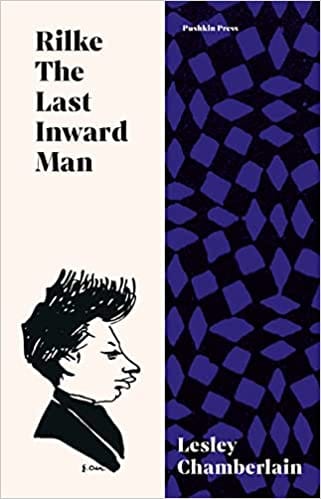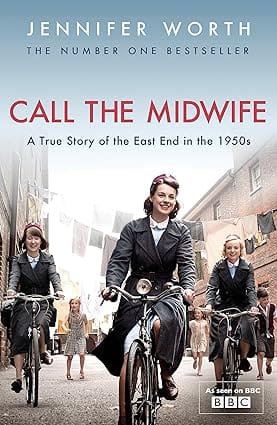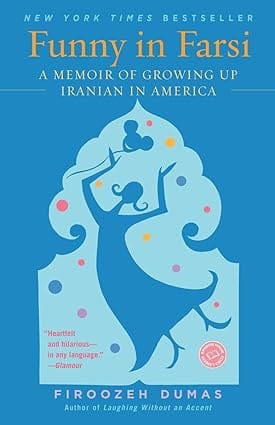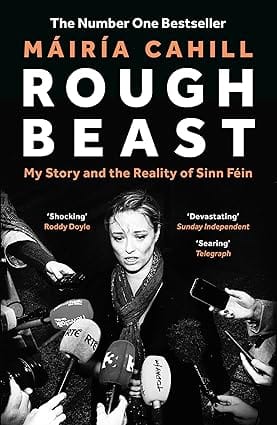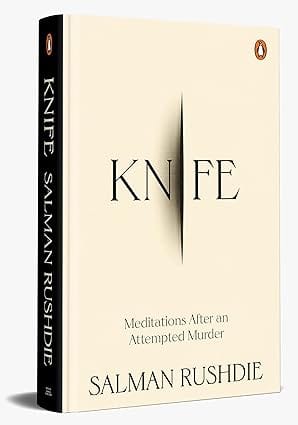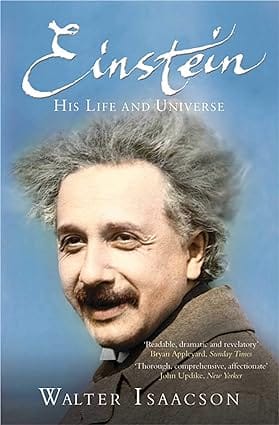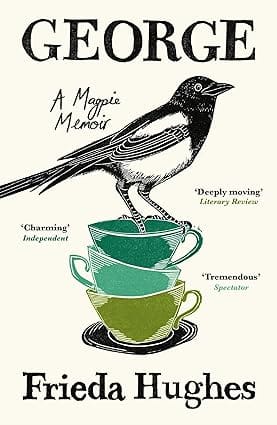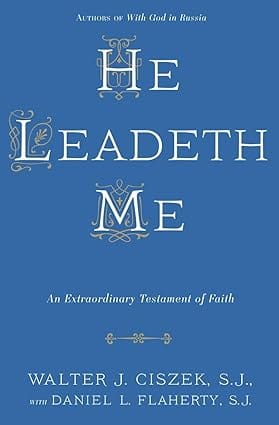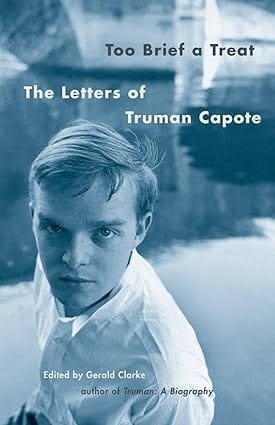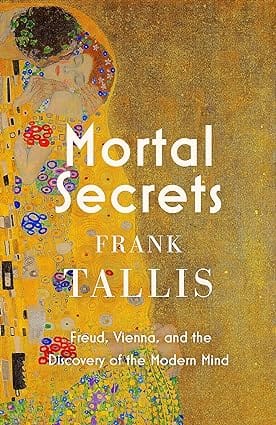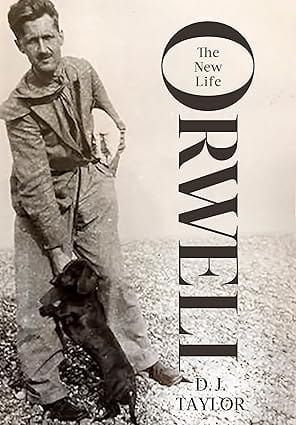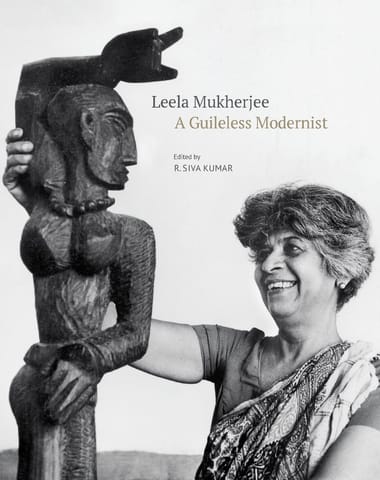- Contemporary Fiction
- Contemporary Fiction
- Children
- Children
- Comics & Graphic Novels
- Comics & Graphic Novels
- Non-Fiction
- Non-Fiction
- Fiction
- Fiction
When Rilke died in 1926, his reputation as a great poet seemed secure. But as the tide of the critical avant-garde turned, he was increasingly dismissed as apolitical, too inward. In Rilke: The Last Inward Man, acclaimed critic Lesley Chamberlain uses this charge as the starting point from which to explore the expansiveness of the inner world Rilke created in his poetry.
Weaving together searching insights on Rilke's life, work and reception, Chamberlain casts Rilke's inwardness as a profound response to a world that seemed ever more lacking in spirituality. In works of dazzling imagination and rich imagery, Rilke sought to restore spirit to Western materialism, encouraging not narrow introversion but a heightened awareness of how to live with the world as it is, of how to retain a sense of transcendence within a world of collapsed spiritual certainty.
Review
About the Author
Excerpt. © Reprinted by permission. All rights reserved.
In 1926, when he died aged only 51, Rainer Maria Rilke counted as a great poet. Ten years later the critical avant garde favoured the imagination of Kafka, a poet writing a new kind of prose; and Brecht, a poet who wanted to change the world. Brecht ended up transforming the lyric poem, and the very concept of theatre. Kafka’s parables became such useful political references that many who admired him would never know him as a writer. It was said that Rilke was not political.
Poetry modernized itself radically and became more social in the politically charged 1930s, in Germany and in England. But two or three decades earlier there had been an aesthetic revolution, of which Oscar Wilde and Henry James caught the outside edge. Rilke was at the centre.
Classical music offers a fabulous example of what was happening to art in Rilke’s Austria and Germany in the early twentieth century. Schoenberg’s atonal music seemed to express modern condition, the way the neo-Romantic tradition before him did not. The neo-Romantics were composers like late Brahms and the searingly emotive Hugo Wolff. They were the forerunners of the Second Viennese School of Schoenberg and others. Their emotionally laden and discordant harmonies pointed ways out of the nineteenth century. But they did not compel the abiding Western tradition to reinvent itself. That’s roughly where I think we should place Rilke too, between these two moments in music. His lyrics and his so-called ‘thing-poems’, his elegies and his sonnets were new and unique, and yet they could be absorbed into what went before; even centuries before. And so with hindsight, and even more political hindsight, Rilke counted as not modern enough.
But to call Rilke conservative and exclusively aesthetic-minded diverted attention precisely from what made him new. The world he addressed was losing its spirituality. His poetry toyed with whether language could recover the loss.
Rilke worked with a limited range of physical experiences. His life had a narrowly focus. But his poems grew into huge questions. Born in Prague and living in Munich, he travelled to Italy. In Rome and Florence he began to test his secular faith in the great humanist tradition. He went to Russia, spent a year in the north German countryside, and moved to Paris. Confined to Munich during the Great War he was only modestly peripatetic thereafter, and gratefully accepted a Swiss bolt-hole purchased in his name for his last four years. When he died in 1926 his poetry was still covering ground that preoccupied him as a young man.
What made him creative was how he responded to that limited series of environments. He relished nature and works of art everywhere, and lived among animals, birds and trees, under dark and light skies. The wind and the stars and the soil were strong presences, while people were scarce. He loved, and noticed, colours, cathedrals, Greek sculptures and children’s merry-go-rounds, and flowers. Two of his most famous short poems evoked the hydrangea and the rose, and, like Van Gogh, he was fascinated by once beautiful life in decline. He spent months of sponsored solitude in some of the minor family houses of a declining European aristocracy; German, Danish, Bohemian. Whether we read him in the original German, or whether we come to him as the English Rilke, or the French Rilke, of the Japanese Rilke, or read him in Braille, he is a great poet, for the music of his language, and for his preoccupations.
What made him great? I would say he was trying to find a new sensibility for the twentieth century, at a time when a certain style of philosophy had not yet made ‘the meaning of life’ a naive question. His poems concern our gender and sexuality, our sense of what we ought to be doing with our lives, the possibility of the existence of God, the charmed kinship with animals which brings us such happiness, the importance of childhood, the attraction of the physical objects we make and buy and choose to live among, the landscapes we respond to, the books we read and the paintings in whose company we live. There is no object under Rilke’s gaze that resists transformation into a feature of a marvellous universe that envelops us in a world that might otherwise leave us restless and afraid.
Human existential identity was a conundrum. Rilke searched not for a definition but for places and seasons that would allow him to speak of it. The search was not for a vantage-point but for a metaphor. So it is a marvellous experience to follow daily life with his eyes, through the park and along the street, and occasionally into a more exotic landscape. He can transform anything. He doesn’t need clichéd Romantic inspiration to enchant his readers. In his 10th Duino Elegy he lists the kinds of places humans frequent: ‘Stelle, Siedlung, Lager, Boden, Wohnort’. Lurking behind this Thesaurus-like list is the question: Where are we? Where do we dwell? And, perhaps, even, how do we flower and bear fruit before we too die? Ripeness is a preoccupation as much as decline.
How to translate that string of places varies. It’s ‘place and dwelling, camp and ground and home’ for Vita and Eddy Sackville-West, the very first translators of the Elegies; ‘place and settlement, foundation and soil and home’ for the outstanding contemporary translator Stephen Mitchell; ‘soil, place, village, storehouse, home’ for the eccentric but sometimes illuminating Rilke pilgrim William Gass. The point is that all kinds of places matter to us: our geographical location, the place we have settled with others, the place we have chosen to rest; where we were born; what is our present address. Add in landscapes: mountains, valleys, meadows, streams, the river Nile, the bridge at Ronda, an ancient volcano. And townscapes: marketplaces, post-offices. All these ‘locations’ bring out features of our human existence to help us speculate on what we are doing here, on this earth, in what Rilke called our Weltraum. Literally it’s the space our world occupies, though it’s also conventionally the universe. For me the right translation will sometimes be ‘space and time’.
By 1875, the year of his birth, Rilke was well aware of the pressures falling on an idealized conception of humanity. The task of his still nominally Christian generation was crucially to respond to Darwin. Reflecting that challenge of an evolved rather than a divinely created humanity, Rilke occasionally expressed a wish to have studied biology. Instead he read a little and improvised. But he was caught up in the great onslaught of the secular that followed the collapse of a Biblical version of the past. The avalanche was set in motion by persuasive evidence that it was not a force called God that created the world, according to some divine plan whose alleged goodness and higher rationality had long troubled the critical and the suffering. Rilke, never in so many words, registered the death of God. Like Nietzsche he sought ‘superabundant substitutes’ for discredited metaphysical consolations. Sometimes also in Nietzsche’s spirit of bold independence Rilke conjured with those substitutes in his own stunningly rich German language.
For much of my life I’ve felt drawn to Rilke precisely because in his presence art can still stand in for a dying capacity for spiritual contemplation. But I’ve learnt to approach him now with some reservation. Theodor Adorno, the critic who in 1936 insisted the future was Kafka and not Rilke, branded Rilke’s inner life a pernicious escapism, discouraging political awareness. Adorno was also the critic who not fifteen years later declared writing poetry barbaric after Auschwitz. Yet it seems obvious that the greatest poet of the Holocaust, Paul Celan, like Rilke another Germanophone writer from another corner of the lately defunct Austrian empire, was deeply influenced by Rilke’s evocation of the materiality of all things human. For Celan in the light of human evil the only moral building material left was language woven about earthly stuff. Moreover, from where did a German-Jewish poet in the post-war years learn that craft of language, and find a vision of equal power, but from Rilke? Both poets understood: if there is some power of goodness, it is what compels us to go on reaching for the right words in the right order to give that goodness some flimsy hold on life.
Take another critic of Rilke’s ‘inwardness’ in his own time: the philosopher Wittgenstein said Rilke was poisonous. Yet we need dig only a little into Wittgenstein’s own private life to find that he too was wrestling with his own introspective and depressive nature, and, surely in some way both unconscious and profound, did not want to be reminded of it. Consciously he was as dependent on his philosophical gift for the sense of his life as Rilke was on the poetic, and had a comparable fear of loss. On the one hand he was deeply immersed in inwardness through his love of music; on the other, in his later work he insisted the inner life lacked value.
From cities and their post-offices to parklands and merry-go-rounds, human beings craft and fabricate the world they use. Wittgenstein’s particular focus was how, among those manufactures, we use language. The disagreement with Rilke never came to a head between the two men. They never met. But had they done, and had a critic been present as a mediator, he or she would have wanted to persuade the philosopher that Rilke’s poetry was art, and not a continuation of metaphysics by other means. Rilke’s poetry is about how we have our being in the world: how we use its artefacts to weave temporary meanings, and there is an obvious relation to what Wittgenstein was doing, though Rilke’s result is bodied, and, to my mind, much more pleasing. He evokes our relation to iron and stone and says for instance that this is how we are embedded in our material world. Perhaps we don’t need to know more than what this pillar of stone knows, having endured through millennia. Embedded in materials, located beneath the sky, leading diurnal lives, we shelter ourselves and we build. From the wall and the pillar, the house and the panther, the king and the work of art, we live among a mass of active co-presences. Sometimes he finds that fact schrecklich, ‘terrifying’, but the human existential condition is also wondrous.
It’s hard to argue that Rilke had a social conscience. Though the sight of the poverty and sickness and the possibility that he too could end up that way filled him with fear, he was rather wary of the rise of social democracy; of its protesting presence in the streets, and the circulation of ‘red’ propaganda. Some critics stress Rilke’s ‘creaturely’ awareness of our common human condition. He felt it and admired it when he travelled among the simple people in Russia. The impoverished streets of Paris held a painful fascination. But in my judgement taking Rilke in this direction is an exaggerated attempt to update him. He lived an easier existence when he could.
That said, much of his ‘inner’ – personal – experience was desperate. No conventional religious consolation came his way for feeling lonely and displaced. The irony is the consolation he has since given to so many readers in so many countries. He wants us to concentrate on our power to respond to the world before seeing it fly away. He wants us to bring the sum of our experience into some kind of order – the kind that poetry can achieve, beautiful but unreconciled -- before we die without any belief in a hereafter. In The Duino Elegies he seems to be writing for us on our deathbed. The angels can’t hear us but why would that stop us making the effort, when we have poetry to show us the way?
Although he was born in Prague and died in Switzerland, having led much of his short life in Paris, Rilke was a German lyric poet whose work appeared with a German publishing house. His success in his lifetime depended on a Germanophone audience. Though he was greatly influenced by linguistically innovative later nineteenth-century French poetry, and although Ruskin and Walter Pater and the English pre-Raphaelite painters, and later Rodin and Cézanne and Paul Valéry introduced aesthetic strains into his work that didn’t derive from German classicism and could rightly be hailed as more generally European than specifically German, or Austrian, still the pressure on Rilke’s language came from the tradition of the mighty German lyric. In the years after 1914 the wife of his publisher urged him to acknowledge this bond with German literature; to make it more conscious. Rilke took up reading Goethe, whom he had previously claimed to dislike. Goethe, who moved with similar, paradigmatic ease between nature, human presence and the creation and company of works of art, reinforced Rilke’s sense of a bond with the earth and the elements. From his middle years and on Goethe evoked a human existence rich in shared material reality and shared feeling. A similar sense of the real was elaborated by Rilke. But it was not a case of a literary debt. It was more an unexpected affinity across the span of two centuries…
- Home
- Non-Fiction
- Biographies
- Rilke The Last Inward Man
Rilke The Last Inward Man
SIZE GUIDE
- ISBN: 9781782277248
- Author: Lesley Chamberlain
- Publisher: Pushkin Press
- Pages: 256
- Format: Hardback
Book Description
When Rilke died in 1926, his reputation as a great poet seemed secure. But as the tide of the critical avant-garde turned, he was increasingly dismissed as apolitical, too inward. In Rilke: The Last Inward Man, acclaimed critic Lesley Chamberlain uses this charge as the starting point from which to explore the expansiveness of the inner world Rilke created in his poetry.
Weaving together searching insights on Rilke's life, work and reception, Chamberlain casts Rilke's inwardness as a profound response to a world that seemed ever more lacking in spirituality. In works of dazzling imagination and rich imagery, Rilke sought to restore spirit to Western materialism, encouraging not narrow introversion but a heightened awareness of how to live with the world as it is, of how to retain a sense of transcendence within a world of collapsed spiritual certainty.
Review
About the Author
Excerpt. © Reprinted by permission. All rights reserved.
In 1926, when he died aged only 51, Rainer Maria Rilke counted as a great poet. Ten years later the critical avant garde favoured the imagination of Kafka, a poet writing a new kind of prose; and Brecht, a poet who wanted to change the world. Brecht ended up transforming the lyric poem, and the very concept of theatre. Kafka’s parables became such useful political references that many who admired him would never know him as a writer. It was said that Rilke was not political.
Poetry modernized itself radically and became more social in the politically charged 1930s, in Germany and in England. But two or three decades earlier there had been an aesthetic revolution, of which Oscar Wilde and Henry James caught the outside edge. Rilke was at the centre.
Classical music offers a fabulous example of what was happening to art in Rilke’s Austria and Germany in the early twentieth century. Schoenberg’s atonal music seemed to express modern condition, the way the neo-Romantic tradition before him did not. The neo-Romantics were composers like late Brahms and the searingly emotive Hugo Wolff. They were the forerunners of the Second Viennese School of Schoenberg and others. Their emotionally laden and discordant harmonies pointed ways out of the nineteenth century. But they did not compel the abiding Western tradition to reinvent itself. That’s roughly where I think we should place Rilke too, between these two moments in music. His lyrics and his so-called ‘thing-poems’, his elegies and his sonnets were new and unique, and yet they could be absorbed into what went before; even centuries before. And so with hindsight, and even more political hindsight, Rilke counted as not modern enough.
But to call Rilke conservative and exclusively aesthetic-minded diverted attention precisely from what made him new. The world he addressed was losing its spirituality. His poetry toyed with whether language could recover the loss.
Rilke worked with a limited range of physical experiences. His life had a narrowly focus. But his poems grew into huge questions. Born in Prague and living in Munich, he travelled to Italy. In Rome and Florence he began to test his secular faith in the great humanist tradition. He went to Russia, spent a year in the north German countryside, and moved to Paris. Confined to Munich during the Great War he was only modestly peripatetic thereafter, and gratefully accepted a Swiss bolt-hole purchased in his name for his last four years. When he died in 1926 his poetry was still covering ground that preoccupied him as a young man.
What made him creative was how he responded to that limited series of environments. He relished nature and works of art everywhere, and lived among animals, birds and trees, under dark and light skies. The wind and the stars and the soil were strong presences, while people were scarce. He loved, and noticed, colours, cathedrals, Greek sculptures and children’s merry-go-rounds, and flowers. Two of his most famous short poems evoked the hydrangea and the rose, and, like Van Gogh, he was fascinated by once beautiful life in decline. He spent months of sponsored solitude in some of the minor family houses of a declining European aristocracy; German, Danish, Bohemian. Whether we read him in the original German, or whether we come to him as the English Rilke, or the French Rilke, of the Japanese Rilke, or read him in Braille, he is a great poet, for the music of his language, and for his preoccupations.
What made him great? I would say he was trying to find a new sensibility for the twentieth century, at a time when a certain style of philosophy had not yet made ‘the meaning of life’ a naive question. His poems concern our gender and sexuality, our sense of what we ought to be doing with our lives, the possibility of the existence of God, the charmed kinship with animals which brings us such happiness, the importance of childhood, the attraction of the physical objects we make and buy and choose to live among, the landscapes we respond to, the books we read and the paintings in whose company we live. There is no object under Rilke’s gaze that resists transformation into a feature of a marvellous universe that envelops us in a world that might otherwise leave us restless and afraid.
Human existential identity was a conundrum. Rilke searched not for a definition but for places and seasons that would allow him to speak of it. The search was not for a vantage-point but for a metaphor. So it is a marvellous experience to follow daily life with his eyes, through the park and along the street, and occasionally into a more exotic landscape. He can transform anything. He doesn’t need clichéd Romantic inspiration to enchant his readers. In his 10th Duino Elegy he lists the kinds of places humans frequent: ‘Stelle, Siedlung, Lager, Boden, Wohnort’. Lurking behind this Thesaurus-like list is the question: Where are we? Where do we dwell? And, perhaps, even, how do we flower and bear fruit before we too die? Ripeness is a preoccupation as much as decline.
How to translate that string of places varies. It’s ‘place and dwelling, camp and ground and home’ for Vita and Eddy Sackville-West, the very first translators of the Elegies; ‘place and settlement, foundation and soil and home’ for the outstanding contemporary translator Stephen Mitchell; ‘soil, place, village, storehouse, home’ for the eccentric but sometimes illuminating Rilke pilgrim William Gass. The point is that all kinds of places matter to us: our geographical location, the place we have settled with others, the place we have chosen to rest; where we were born; what is our present address. Add in landscapes: mountains, valleys, meadows, streams, the river Nile, the bridge at Ronda, an ancient volcano. And townscapes: marketplaces, post-offices. All these ‘locations’ bring out features of our human existence to help us speculate on what we are doing here, on this earth, in what Rilke called our Weltraum. Literally it’s the space our world occupies, though it’s also conventionally the universe. For me the right translation will sometimes be ‘space and time’.
By 1875, the year of his birth, Rilke was well aware of the pressures falling on an idealized conception of humanity. The task of his still nominally Christian generation was crucially to respond to Darwin. Reflecting that challenge of an evolved rather than a divinely created humanity, Rilke occasionally expressed a wish to have studied biology. Instead he read a little and improvised. But he was caught up in the great onslaught of the secular that followed the collapse of a Biblical version of the past. The avalanche was set in motion by persuasive evidence that it was not a force called God that created the world, according to some divine plan whose alleged goodness and higher rationality had long troubled the critical and the suffering. Rilke, never in so many words, registered the death of God. Like Nietzsche he sought ‘superabundant substitutes’ for discredited metaphysical consolations. Sometimes also in Nietzsche’s spirit of bold independence Rilke conjured with those substitutes in his own stunningly rich German language.
For much of my life I’ve felt drawn to Rilke precisely because in his presence art can still stand in for a dying capacity for spiritual contemplation. But I’ve learnt to approach him now with some reservation. Theodor Adorno, the critic who in 1936 insisted the future was Kafka and not Rilke, branded Rilke’s inner life a pernicious escapism, discouraging political awareness. Adorno was also the critic who not fifteen years later declared writing poetry barbaric after Auschwitz. Yet it seems obvious that the greatest poet of the Holocaust, Paul Celan, like Rilke another Germanophone writer from another corner of the lately defunct Austrian empire, was deeply influenced by Rilke’s evocation of the materiality of all things human. For Celan in the light of human evil the only moral building material left was language woven about earthly stuff. Moreover, from where did a German-Jewish poet in the post-war years learn that craft of language, and find a vision of equal power, but from Rilke? Both poets understood: if there is some power of goodness, it is what compels us to go on reaching for the right words in the right order to give that goodness some flimsy hold on life.
Take another critic of Rilke’s ‘inwardness’ in his own time: the philosopher Wittgenstein said Rilke was poisonous. Yet we need dig only a little into Wittgenstein’s own private life to find that he too was wrestling with his own introspective and depressive nature, and, surely in some way both unconscious and profound, did not want to be reminded of it. Consciously he was as dependent on his philosophical gift for the sense of his life as Rilke was on the poetic, and had a comparable fear of loss. On the one hand he was deeply immersed in inwardness through his love of music; on the other, in his later work he insisted the inner life lacked value.
From cities and their post-offices to parklands and merry-go-rounds, human beings craft and fabricate the world they use. Wittgenstein’s particular focus was how, among those manufactures, we use language. The disagreement with Rilke never came to a head between the two men. They never met. But had they done, and had a critic been present as a mediator, he or she would have wanted to persuade the philosopher that Rilke’s poetry was art, and not a continuation of metaphysics by other means. Rilke’s poetry is about how we have our being in the world: how we use its artefacts to weave temporary meanings, and there is an obvious relation to what Wittgenstein was doing, though Rilke’s result is bodied, and, to my mind, much more pleasing. He evokes our relation to iron and stone and says for instance that this is how we are embedded in our material world. Perhaps we don’t need to know more than what this pillar of stone knows, having endured through millennia. Embedded in materials, located beneath the sky, leading diurnal lives, we shelter ourselves and we build. From the wall and the pillar, the house and the panther, the king and the work of art, we live among a mass of active co-presences. Sometimes he finds that fact schrecklich, ‘terrifying’, but the human existential condition is also wondrous.
It’s hard to argue that Rilke had a social conscience. Though the sight of the poverty and sickness and the possibility that he too could end up that way filled him with fear, he was rather wary of the rise of social democracy; of its protesting presence in the streets, and the circulation of ‘red’ propaganda. Some critics stress Rilke’s ‘creaturely’ awareness of our common human condition. He felt it and admired it when he travelled among the simple people in Russia. The impoverished streets of Paris held a painful fascination. But in my judgement taking Rilke in this direction is an exaggerated attempt to update him. He lived an easier existence when he could.
That said, much of his ‘inner’ – personal – experience was desperate. No conventional religious consolation came his way for feeling lonely and displaced. The irony is the consolation he has since given to so many readers in so many countries. He wants us to concentrate on our power to respond to the world before seeing it fly away. He wants us to bring the sum of our experience into some kind of order – the kind that poetry can achieve, beautiful but unreconciled -- before we die without any belief in a hereafter. In The Duino Elegies he seems to be writing for us on our deathbed. The angels can’t hear us but why would that stop us making the effort, when we have poetry to show us the way?
Although he was born in Prague and died in Switzerland, having led much of his short life in Paris, Rilke was a German lyric poet whose work appeared with a German publishing house. His success in his lifetime depended on a Germanophone audience. Though he was greatly influenced by linguistically innovative later nineteenth-century French poetry, and although Ruskin and Walter Pater and the English pre-Raphaelite painters, and later Rodin and Cézanne and Paul Valéry introduced aesthetic strains into his work that didn’t derive from German classicism and could rightly be hailed as more generally European than specifically German, or Austrian, still the pressure on Rilke’s language came from the tradition of the mighty German lyric. In the years after 1914 the wife of his publisher urged him to acknowledge this bond with German literature; to make it more conscious. Rilke took up reading Goethe, whom he had previously claimed to dislike. Goethe, who moved with similar, paradigmatic ease between nature, human presence and the creation and company of works of art, reinforced Rilke’s sense of a bond with the earth and the elements. From his middle years and on Goethe evoked a human existence rich in shared material reality and shared feeling. A similar sense of the real was elaborated by Rilke. But it was not a case of a literary debt. It was more an unexpected affinity across the span of two centuries…
User reviews
NEWSLETTER
Subscribe to get Email Updates!
Thanks for subscribing.
Your response has been recorded.

India's Iconic & Independent Book Store offering a vast selection of books across a variety of genres Since 1978.
"We Believe In The Power of Books" Our mission is to make books accessible to everyone, and to cultivate a culture of reading and learning. We strive to provide a wide range of books, from classic literature, sci-fi and fantasy, to graphic novels, biographies and self-help books, so that everyone can find something to read.
Whether you’re looking for your next great read, a gift for someone special, or just browsing, Midland is here to make your book-buying experience easy and enjoyable.
We are shipping pan India and across the world.
For Bulk Order / Corporate Gifting
 +91 9818282497 |
+91 9818282497 |  [email protected]
[email protected]
Click To Know More
INFORMATION
ACCOUNT
ADDRESS
Shop No.20, Aurobindo Palace Market, Near Church, New Delhi

